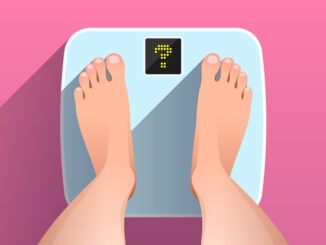
Members of Doctors for Extinction Rebellion tell Jacqui Wise that peaceful civil disobedience is the only way to achieve action – and that it is unlikely to affect their careers
This is an edited version of an article that originally appeared on The BMJ
On 3 September the Bristol GP Patrick Hart was arrested for supergluing his hands to a concrete planter outside the bank JP Morgan’s headquarters in Canary Wharf, London. He was one of about 60 doctors, nurses and other health professionals taking part in a protest organised by the campaigning group Doctors for Extinction Rebellion to target the financial institutions that underpin the climate crisis. They had banners, leaflets and a letter to the chief executive calling on the bank to stop investing in fossil fuels.
“I am naturally a conformist with a slightly anxious disposition, and I don’t generally like to rock the boat,” Hart tells The BMJ, “but I feel I don’t have an alternative; it’s an act of conscience.” After his hands were freed by police, Hart was arrested on suspicion of criminal damage but was released without charge 18 hours later.
Hart, who is in his 30s and a salaried GP, worries “a lot” about how his actions might affect his career, he says. “But I worry even more about the climate emergency. There would be lingering guilt if I didn’t act when I could. By the time I retire, we will be watching the worst effects of climate change play out if we don’t see action right now.”
The science is settled; a global temperature increase of 1.5°C above the pre-industrial average risks irreversible catastrophic harm to health. Many governments have said they will reduce net carbon emissions but lack credible plans for action.
At the same protest Grace Thompson, a GP in south Gloucestershire, was part of a staged ‘die-in’, where protestors lie motionless on the ground, symbolising deaths caused by investment in fossil fuels. She was forcibly removed by private security guards but not arrested. She says she is motivated by concern for her three children’s future—but also deeply worried for her patients.
“We have a duty of care, not only to our patients now, but also to our patients who are just being born,” she says. “When I do baby checks I know the thing that will affect the health of those babies the most is whether we keep to 1.5°C on warming or go to 3°C.”
Thompson has found protesting cathartic. “Putting my head in the sand didn’t help. I feel much more positive by going on protests than I did before.”
Doctors and civil disobedience
More than a thousand doctors have joined Doctors for Extinction Rebellion, a collective which, ‘appreciating that climate change is an impending public health catastrophe have decided to undertake civil disobedience with the protest group Extinction Rebellion’. This includes seeking arrest. The group says that the General Medical Council’s Duties of a Doctor compel them to act where there are unacceptable risks to current and future patient health. Drawing comparisons with the suffragettes, they say that mass arrest is effective to mobilise political participation.
“I’d been on innumerable climate marches over 10 years that had achieved nothing,” says Robin Aitchison, a consultant haematologist in Buckinghamshire, who decided to take more disruptive action to try to influence government policy. He was arrested in 2019 for blocking Whitehall as part of a climate change protest – held in a police cell for eight hours but never charged. At 62 years old, Aitchison says that because he is close to retirement he is not overly concerned about any potential impact on his career.
Although younger doctors may worry more, it has not deterred Juliet Bottle, an acute medicine trainee in London. In September 2020 she and 200 other protestors were arrested while taking part in a mass cycle ride that ended in blocking Lambeth Bridge. She was taken to a police station, held for two hours and released pending investigation, but no further action was brought.
When she applied for a recent training job, she had to declare the arrest, she says. In her application, in support of her actions, she quoted Richard Horton, The Lancet’s editor, as well as GMC advice about promoting the health of the public. She says her arrest did not impede her getting the post. “If any future employer had a problem with what I do I’d be surprised, and I would be willing to fight for my principles,” she says. “I feel I’m on the right side of history.”
Doctors visibly joining protests – for example, wearing scrubs and stethoscopes – sends a powerful message to the public, interviewees tell The BMJ. “Doctors are scientifically literate, and we can communicate to the public,” Juliet Bottle says. “Doctors are also seen as part of the establishment and, if you see them being arrested, that is shocking and is quite powerful.”
Suspended as a GP appraiser
Sarah Benn, a Worcestershire GP, was arrested in 2019 after she superglued her hand to the Department of Business, Energy, and Industrial Strategy in a protest organised by Doctors for Extinction Rebellion. She was charged with trespass. She was also charged with assaulting a security guard, which she denies. The assault charge was dropped after film footage emerged, and Benn received a conditional discharge with costs.
“For 52 years I have been a law-abiding citizen who doesn’t queue jump or complain in restaurants. I don’t like being in trouble; it makes me feel quite ill,” she tells The BMJ.
Benn is a salaried GP and says her boss has been sympathetic. After informing the GMC, she received a letter of advice asking her to reflect on her actions. She also informed her local performance advisory group and had to meet with her responsible officer. She has been suspended as a GP appraiser but has had no other restrictions put on her practice. At least I can live with myself; I can’t face the prospect of my children asking me why I didn’t do something.”
She urges other doctors to spend just half a day looking at the evidence about climate change.


Be the first to comment